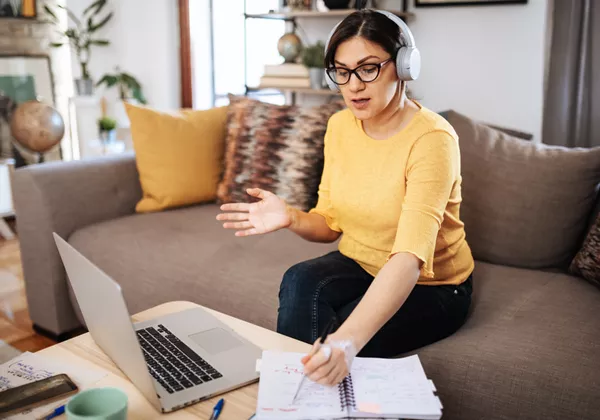Anxiety is a common and often debilitating mental health condition that affects millions of people worldwide. While anxiety triggers can vary widely from person to person, they often provoke feelings of fear, worry, or unease that can interfere with daily life. Learning to manage anxiety triggers is essential for reducing symptoms and improving overall well-being. In this article, we’ll explore effective strategies for coping with anxiety triggers, empowering individuals to take control of their anxiety and find relief.
Understanding Anxiety Triggers
Anxiety triggers are external or internal stimuli that evoke feelings of anxiety or distress in individuals with anxiety disorders. These triggers can be specific situations, events, thoughts, or memories that provoke a fear response or trigger negative emotions. Common anxiety triggers include social situations, work or school stress, financial concerns, health issues, relationship problems, and traumatic experiences. Identifying and understanding your anxiety triggers is the first step in managing anxiety effectively.
Recognizing Physical and Emotional Symptoms
When faced with anxiety triggers, individuals may experience a range of physical and emotional symptoms. Physical symptoms of anxiety can include rapid heartbeat, shortness of breath, sweating, trembling, muscle tension, and gastrointestinal discomfort. Emotional symptoms may include feelings of fear, worry, restlessness, irritability, and difficulty concentrating. Recognizing these symptoms is crucial for identifying when you’re experiencing anxiety and implementing coping strategies to manage your response effectively.
Practice Mindfulness and Grounding Techniques
Mindfulness and grounding techniques can help individuals stay present and calm when faced with anxiety triggers. Mindfulness involves paying attention to the present moment without judgment, allowing individuals to observe their thoughts and emotions without becoming overwhelmed by them. Grounding techniques focus on redirecting attention away from anxious thoughts and sensations toward the immediate environment. Examples of grounding techniques include deep breathing exercises, progressive muscle relaxation, visualization, and using the five senses to engage with the present moment.
Challenge Negative Thoughts and Beliefs
Anxiety triggers are often accompanied by negative thoughts and beliefs that contribute to feelings of fear and worry. Cognitive-behavioral techniques can help individuals challenge and reframe these negative thoughts, replacing them with more balanced and realistic interpretations. This may involve identifying cognitive distortions such as catastrophizing, black-and-white thinking, or overgeneralization, and replacing them with more rational and adaptive thoughts. Keeping a thought journal can be helpful for tracking and challenging negative thought patterns over time.
Practice Relaxation Techniques
Relaxation techniques can help individuals reduce anxiety and promote a sense of calm and relaxation. These techniques work by activating the body’s relaxation response, which counteracts the stress response activated by anxiety triggers. Examples of relaxation techniques include deep breathing exercises, progressive muscle relaxation, guided imagery, meditation, and yoga. Incorporating these techniques into your daily routine can help reduce overall levels of anxiety and improve your ability to cope with anxiety triggers.
Establish Healthy Coping Strategies
Developing healthy coping strategies is essential for managing anxiety triggers effectively. This may involve engaging in activities that promote relaxation and stress relief, such as exercise, spending time outdoors, pursuing hobbies and interests, or connecting with supportive friends and family members. Avoiding unhealthy coping mechanisms such as substance abuse, excessive alcohol consumption, or self-isolation is also important for maintaining mental and emotional well-being. Finding healthy outlets for stress and anxiety can help individuals build resilience and cope more effectively with anxiety triggers.
Set Realistic Expectations
Setting realistic expectations for yourself is important for managing anxiety triggers and reducing feelings of overwhelm. Recognize that it’s normal to experience anxiety from time to time, and that it’s okay to seek support when needed. Be gentle with yourself and avoid putting undue pressure on yourself to be perfect or to eliminate all sources of anxiety from your life. Focus on progress rather than perfection, and celebrate small victories along the way. Remember that managing anxiety is a journey, and it’s important to be patient and compassionate with yourself as you navigate it.
Seek Professional Support
If you’re struggling to manage anxiety triggers on your own, don’t hesitate to seek professional support. A mental health professional such as a therapist or counselor can provide guidance, support, and evidence-based treatments for anxiety disorders. Cognitive-behavioral therapy (CBT), exposure therapy, and medication are common treatment options for anxiety disorders, and may be recommended depending on your individual needs and preferences. A mental health professional can work with you to develop a personalized treatment plan tailored to your specific symptoms and goals.
Practice Self-Care
Practicing self-care is essential for managing anxiety triggers and maintaining overall well-being. This includes prioritizing activities that nourish your mind, body, and spirit, such as getting enough sleep, eating a balanced diet, staying hydrated, and engaging in regular physical activity. It also involves setting boundaries, saying no when necessary, and prioritizing activities that bring you joy and fulfillment. Making self-care a priority can help reduce stress, boost resilience, and improve your ability to cope with anxiety triggers effectively.
Conclusion
Managing anxiety triggers is essential for reducing symptoms and improving overall quality of life. By understanding your anxiety triggers, recognizing physical and emotional symptoms, practicing mindfulness and grounding techniques, challenging negative thoughts and beliefs, practicing relaxation techniques, establishing healthy coping strategies, setting realistic expectations, seeking professional support, and practicing self-care, you can effectively cope with anxiety triggers and find relief from anxiety. Remember that managing anxiety is a journey, and it’s important to be patient and compassionate with yourself as you navigate it. With time, practice, and support, you can learn to manage your anxiety triggers and live a more balanced and fulfilling life.
Related topics:




























